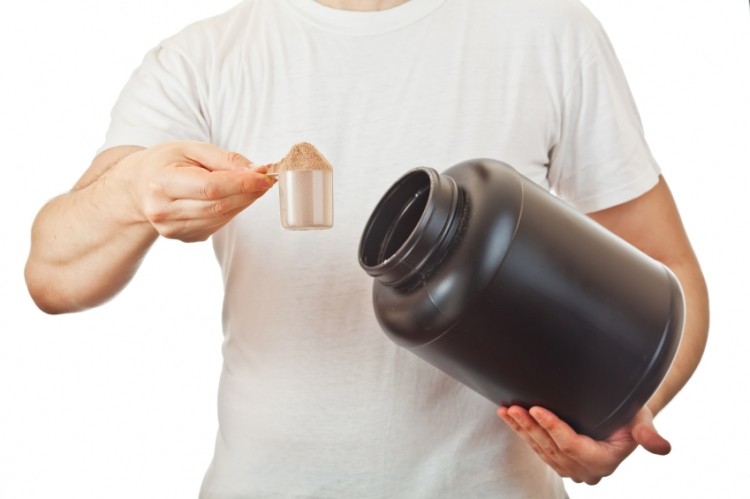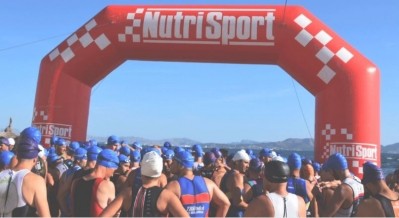SPORTS NUTRITION CONGRESS PREVIEW 2018
Non-compliance in sports nutrition: Why firms must get on board for the greater good

But where innovation has been allowed to shine, there is a fear that the impending regulatory landscape is stifling new ideas and directions, citing a duty to ensure consumer safety and well-being.

“Sports nutrition is naturally innovative, and sports people, who are often young people, are themselves innovation seekers. ESSNA has worked hard to ensure a flexible regulatory framework where innovation is possible,” said Luca Bucchini, vice chair for the European Specialist Sports Nutrition Alliance (ESSNA).
“However, the very nature of our consumers make them sometimes vulnerable to products that may not be safe, legal or with science-based, accurate claims, and there has been in the past an attitude of regulators of not paying attention, or sufficient attention, to the real non-compliance issues.”
Bucchini is guest speaker at NutraIngredient’s first Sports Nutrition Congress in Brussels as one of a handful of regulatory experts to feature at the event, which seeks to provide clarification in a fast moving legal environment.
He is at pains to describe the importance of robust regulation within the sports nutrition industry particularly as Bucchini points out, few e-retailers and fringe companies, as well as big platforms, are stubbornly committed to non-compliance.
Claims, evaluation & fraud
“The first area of abuse is claims. Regulations are not easy, and is tempting to exaggerate,” said Bucchini.
“Secondly, we have substances that have not been evaluated properly (unauthorised novel foods), should be used only in drugs, or sometimes are not safe (DMAA and similar stimulants come to mind) or are not acceptable to athletes, like doping substances.
“Finally, we have fraud, for example in the form of protein spiking. The industry has improved in terms of awareness, but there is a fringe of concern, which finds in platforms a way to access consumers.”
Bucchini believes non-compliance has damaged the reputation of the industry, although he added its reputation remains strong and getting better.
“It needs to be protected,” he said. “We have not seen some of the worst events in the EU in part because of the regulatory framework.
“People, and consumers of our products, do not realise yet how much effort by the industry into improving compliance.“
Want to attend our Sports Nutrition Congress in September this year?
Organised by NutraIngredients and hosted in partnership with the European Specialist Sports Nutrition Alliance (ESSNA), the SNC will offer a one stop shop for the latest must-have insights in the worlds of sports and active nutrition - including the use of ketones in sports.
Register now to make you are there!
Top levels speakers already confirmed to join us in Brussels include:
- Florina-Andreea Pantazi, European Commission
- Daniel Davy, Leinster Rugby
- Orla O’Sullivan, APC Microbiome Institute
- Robert Walker, SCI-MX Nutrition
- Professor Kieran Clarke, University of Oxford
- João Gonçalo Cunha, KickUP Sports Innovation
- Pia Ostermann, Euromonitor International
- Katia Merten-Lentz, Keller and Heckman LLP
- Adam Carey, ESSNA Chair
- Alex Zurita, London Sport
- Professor John Brewer, St Mary’s University
- Tom Morgan, Lumina Intelligence
- Luca Bucchini, Hylobates Consulting & ESSNA Vice-Chair
Click this link find out more about what’s on the agenda for the congress.
As ESSNA’s vice chair, Bucchini has seen first-hand the extent of the problem, in which the alliance outlined in April this year tackling 406 cases of non-compliant sports nutrition products.
These included those that misled consumers or included banned doping substances, in the last five years as part of its efforts to ensure consumer safety and protect the integrity of the industry.
The Food Safety Authority of Ireland (FSAI) contributed to these numbers as investigators recalled a range of branded food supplements, back in March, which they believed were tainted with illegal steroids and stimulants.
An evolving regulatory landscape
Despite these cases, Bucchini details how the industry is evolving to ensure compliance and keeping unscrupulous manufacturers away from producing unsafe products.
“With some exceptions (definition of protein), I think laws are largely in place: you can't sell a product with DMAA; you can't spike proteins with nitrogen which does not build proteins; you can't claim your product is like anabolic steroids,” said Bucchini.
“We have regulations on official controls; most countries have fines. We need determination, capability, tools and resources for enforcement. The EC has started to work with platforms such as Amazon, Google, etc.: it has not gone far enough, as illegal products continue to be available on platforms.
“That is a job for the Commission, and, yes, some legal changes may be required. Cooperation of authorities across Europe is also needed: too often reporting unlawful products in certain EU countries seems a waste of time, because authorities will not act, also out of a sense of impotence.”
The issue of cooperation is crucial to the success of legislation and its enforcement. But, like all issues of safety, regulation and awareness, Bucchini agrees it’s a multi-factorial challenge that involves all stakeholders within the industry.
“Dialogue is the first step,” he said. “Regulators should listen to the industry; we don't ask for more laws, but for effective enforcement, which is - we know - a tougher challenge for the EU than law-making.
“ESSNA has led the way with best practices in the UK; dialogue is needed with other authorities and with the Commission to extend this approach to target the worst offenders.
“Also, sports nutrition and the anti-doping community should speak and understand each other, as we both want doping free sports. Finally, companies need to be aware of the issues and of course the industry as a whole needs to listen to other parties.”















